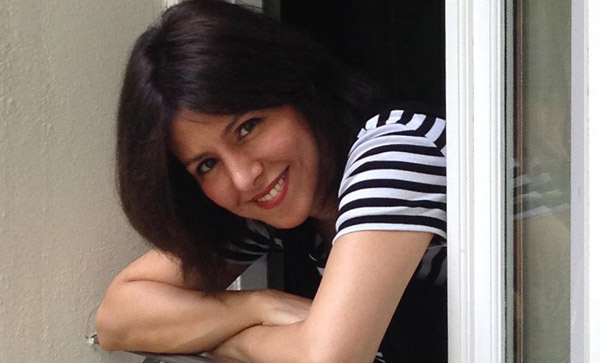The last time Susan Taslimi made an appearance on an Iranian screen was in Bashu, the Little Stranger, a 1986 acclaimed film directed by Bahram Beizaie. At the time, nobody, included the director, had any idea that Taslimi was thinking of leaving the country. She left at the height of her career. She was the first Iranian female actress following the Islamic Revolution of 1979 to appear in a non-Iranian film without a hijab.On the eve of the Islamic revolution, Taslimi had been one of Iran’s most prominent cinema and theater stars and it was widely believed that she had a bright future ahead of her. But the revolution dashed many of her dreams and expectations. Critics of the Islamic Republic cultural policies believe that her melancholic looks and strong presence on camera unnerved the revolutionary clerics, which led them to target her. Not long afterwards, she became one of the first Iranian actresses to be banned from appearing on stage.The ban was enforced while Taslimi was working at the Tehran City Theater, a center of avant-garde theater productions before the Iranian revolution. When the ban came into force, she took up a role as the theater’s librarian. But the authorities remained dissatisfied, and so she was dismissed from this job as well. At this point, she was prohibited from entering the theater building at all.Taslimi appeared in a number of films and television series, none of which could be screened in Iran. So, in 1987, she decided to try her luck in Europe and so quickly left Iran for Sweden. Taslimi began her acting career anew in Sweden, which proved a challenge for her. But she made a name for herself in 1991 with her one-woman portrayal of Euripides’ Medea in the Swedish city of Gothenburg.“I feel like something is missing here and that’s my ability to perform for Iranian audiences,” Taslimi told BBC Persian in August 2010. “If Iran becomes a normal society one day, I see it as my duty and my desire to go back and pass on what I’ve learned to the next generation.”Taslimi has lived in Sweden for nearly three decades now and remains active as both an actor and director. Altogether, she has directed four films and a TV series in Sweden.
Shabnam Tolouei: Forced into Exile

Shabnam Tolouei was forced into exile following pressure from the Islamic Ministry of Culture and Guidance, which tried to make her choose between her Baha’i faith and her career. However, she was unwilling to renounce her religion to save her career.
Tolouei learned filmmaking and acting at the Bagh-e Ferdows Film School in Tehran, but she was banned from higher education because she was a Baha’i. Despite this, she appeared in several plays directed by prominent theater directors, including Bahram Beizaie, Ali Rafiei and Pari Saberi, as well as in numerous films and television series. Later on, she directed a play entitled Bitter Coffee, during which she demonstrated her ability as a director as well as an actress. At the Tehran Fajr Theater Festival, she received many awards, including best actress and a second prize for directing Bitter Coffee.
But, eventually, being a Baha’i caught up with her. As she refused to renounce her faith, she was banned from working in theater or film. So, in 2004, she decided to move to France, where she studied at the University of Paris at Nanterre and received a BA in Theater Studies.
During her studies, she continued to work in the theatre and appeared on stages across cities in Germany, Sweden and the Czech Republic. Several years later, she returned to the silver screen when she starred in the 2009 film Women Without Men, directed by Shirin Neshat. Neshat won best director for the film at the Venice Film Festival’s Silver Lion award.
Then in 2015, Tolouei made Dust, Flower, Flame, a documentary about the life of Tahereh Qurratu’l-Ayn, a 19th century female Baha’i poet who was killed for her faith. The poet was one of the first Iranian women to take off the hijab in the presence of men.
Zohreh Rahmat, Citizen Journalist, Tabriz
Next in the series: Zahra Amir Ebrahimi and Golshifteh Farahani


Leave a Reply